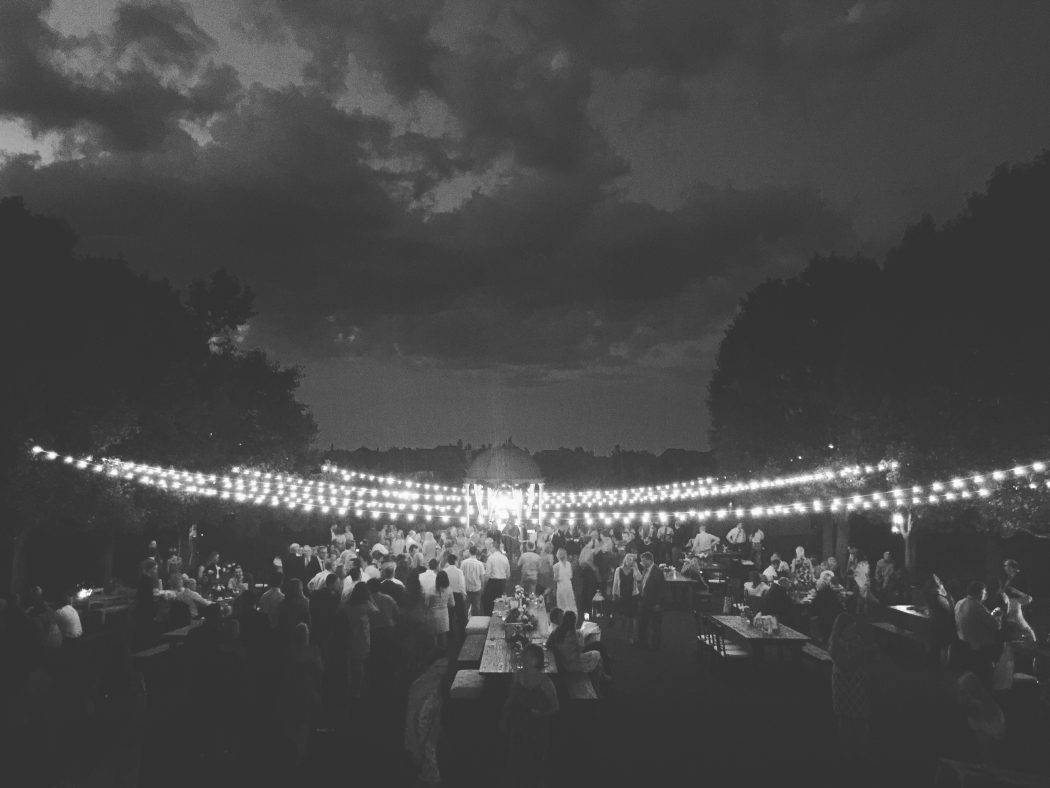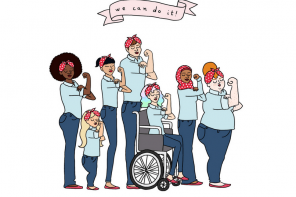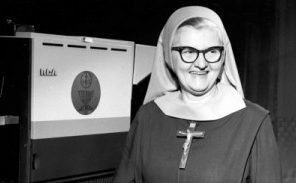In a recent lecture for First Things, a prominent institute that publishes a monthly journal on religion and public life, Dr. Russell Moore, President of the Southern Baptist Religious Liberty Commission discussed the fate of religious conservatism. His call to millennials who are disenchanted with the state of politics in our country was one of engagement. He explained that, “Failing to see the good of politics and how it may fit within the priorities of Gospel-oriented mission, they [millennials] seek to avoid becoming political hacks by disengaging altogether.”
As a woman of faith, and one who speaks plainly on the reality of marriage—its joys and challenges alike—I find the same call must be made of millennials if the tradition of marriage and family life is to survive. As Dr. Moore stated, “Millennials tend to have strong, conservative moral stands on at least one sexual revolution issue: divorce. They don’t buy into the 1970s idea that divorce can be a vehicle of self-actualization, and “the kids will be alright.” They lived through it and know better. But their avoidance of divorce can show up not just in a commitment to marital fidelity in their own lives, but also in a refusal to marry at all.”
My little sister, Danielle, just got married in August. I have four younger sisters, and she is the first to join me in the married club. Danielle is one of my best friends, and I absolutely love walking with her through the different seasons of life. Now that will include walking with her in this new, exciting chapter in her life! She is 23, and she and Caleb have a cute little place to call their own. Yet the latest research shows that they are not the norm.
Why are millennials (18-34 year olds) more likely to be living with their parents than living with a spouse? A 2014 Pew Research report noted that for the first time in American history since 1880, young adults are more likely to be living with parents than living with a spouse or cohabitating with a partner. The Pew report points to a few reasons why this might be so:
- The postponement of marriage until later in their twenties (or total retreat from marriage).
- Lower employment rates among young people, and increasingly lower wages (after inflation) for young men when compared to 1970.
- Higher college enrollment since the Great Recession (late 2000s to early 2010s) led to more young adults living at home.
Although all of these reasons are suggested as causes for this phenomenon, the report emphasizes the delay of marriage as the leading cause, over and above the lower employment rates and higher college attendance factors.
Having lived in two U.S. cities that vary culturally – Oklahoma City and New York City – I have seen both ends of the spectrum when it comes to marriage age. New York is one of the oldest-marrying states, with the average marriage age being 28.8 for women and 30.3 for men. The only location with an older-marrying age is Washington, DC. In contrast, Oklahoma is one of the youngest-marrying states, with the average marriage age being 24.8 for women and 26.3 for men. Only Utah, Idaho, and Wyoming have a younger-marrying age.
I’ve heard a lot of people, too, that support the idea of marrying at an older age. Their logic is understandable: enjoy singleness, be independent and free while you can, “find yourself” before you settle down, focus on your career first, etc. But what about doing these things alongside a spouse? It may take longer, because there inevitably needs to be time factored into your schedule to work on the marriage – but I also think there is great power in partnering.
Our culture sees individual autonomy as the highest good. Yet while this does keep some people from having a positive view of marriage as the gift that it is, I want to acknowledge that there are also those who are led to remain single or desire to be married but haven’t found the right person yet. To those that are single, your singleness does not mean that you are “incomplete,” or waiting for “real adulthood” to begin. Singleness should be valued. God uses single people to teach others valuable lessons as well. But I want to challenge those of us in the millennial generation that may delay marriage because of the cultural notion that individual autonomy should be valued over collaboration.
I recently read an article where Jeannie Gaffigan, wife of comedian Jim Gaffigan, was being interviewed. She points out that culture subliminally tells us that we have to be 100% on our own – independent and autonomous. But independence can be overrated. It is not weak to be joined up with someone – whether a spouse or even a team. We can accomplish more in a team than we can on our own. The same goes for marriage. When you are teamed up with someone, it may take a little longer to get where you want to be, but in the end you can go farther.
I was younger than the average Oklahoman when I got married at 21 in 2009, and I wouldn’t change it for anything. Marriage has taught me a lot over the years. It has shown me more of my selfishness than anything else in my life thus far, and I value those lessons. (I hear this happens all over again when you have kids– but I’m not there yet!) It has also taught me how to work with someone who has opposite strengths, and this has allowed me to grow in areas where I am weak. I also have built-in accountability, which grows my character. All of these things have been beneficial for me in other areas of life and in my work.
Mostly what I am grateful for is the way that I’ve learned more about the gospel through marriage. Marriage is not for my happiness, but for my holiness. My husband has seen my worst moments, and I have seen his. No one can cause more pain than those closest to you, and in the times where I have wronged Michael, he has showed me grace and forgiveness. And likewise, as he has wronged me, I have had the chance to practice forgiveness for him. I can have the strength to forgive because I know that I have been forgiven exponentially more through Jesus Christ’s (Colossians 2:12-13; 3:12-17; 1 John 4:7-12, 19-21).
Marriage was created by God and is for our good. Let’s not allow culture to fool us into disengaging, and missing out on this great gift.
Lauren McAfee is a connector, Museum of the Bible advocate, and brunch enthusiast with a heart to engage others in the Bible.
An Oklahoma girl living in Manhattan. Third generation member of the Hobby Lobby Green family. Happily married to her High School Sweetheart Michael McAfee. Committed to Jesus Christ. Addicted to Starbucks Chai. Compelled to buy more books than she could ever read. Follow @laurenamcafee and read her blog.
Photo Credit: Lauren’s blog





